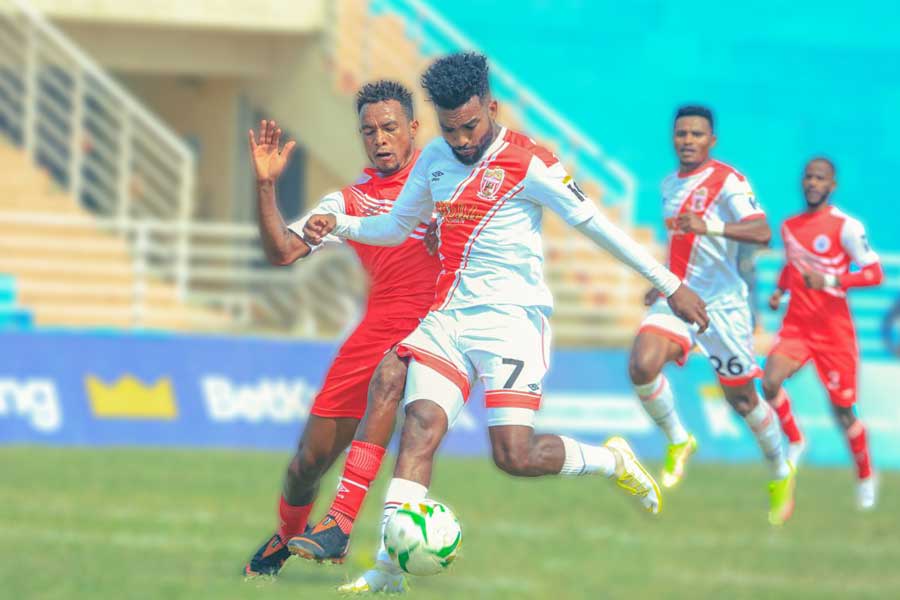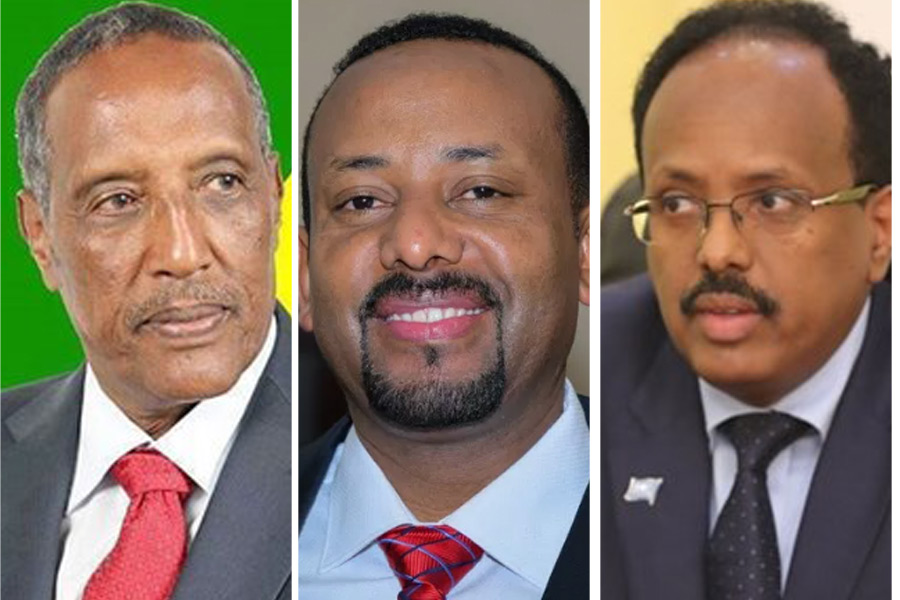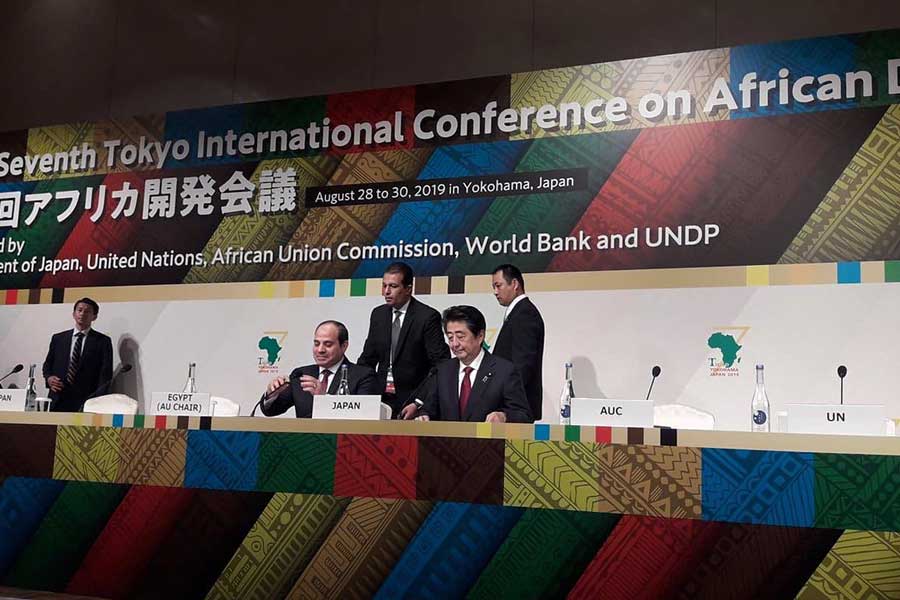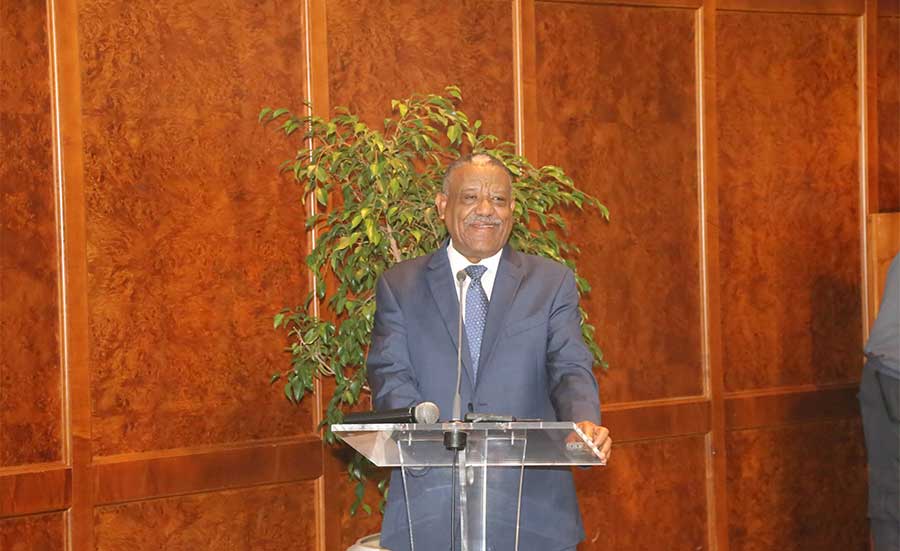
Dec 19 , 2018
By Eden Sahle
Intimidation and violence are much too associated with leadership in Africa. Failure to ensure justice, redress and accountability remain a key driver of human rights violations and abuses in many countries.
Amid these, the courage of ordinary people and human rights' defenders to stand up for justice, equality and dignity in the face of repression continue to be the lights at the end of the tunnel. Hope lies in the countless people across the region that stood up for human rights, justice and dignity while risking their lives and freedoms.
A few weeks back, I met a group of human rights activists from the continent who spoke about the inhuman and brutal treatment they went through in their own respective countries for speaking out against political leaders.
Among the heart-breaking stories, a young woman from Togo and a father of two from South Sudan affected me the most. The immoral treatment, sexual violence and the brutality they have experienced were extremely hard to listen to.
Such relentless violence against civilians in long-standing conflicts is compounded by the stagnation of political efforts to resolve crises, which is especially the case in the African continent.
Intolerance of peaceful criticism and an entrenched disregard for the right to freedom of peaceful assembly are a norm. From Togo to Zimbabwe, Chad, Equatorial Guinea, Burundi, Sudan and South Sudan, it is common to hear media reports of mass arrests of peaceful protesters, as well as excessive use of force, displacement, sexual violence and torture.
Political prisoners are detained without charge and access to lawyers and family members. Respect for human and constitutional rights are the exception rather than the rule.
In African countries such as Angola, Chad, the Democratic Republic of the Congo, Sudan and Togo, legal administrations are used to impose restrictions and bans on peaceful protests.
Although the nature and intensity of Africa’s conflicts vary, the crisis is generally characterized by gross human rights abuses and violations of international law, and unaccountability. Lingering conflicts, along with recurring humanitarian crises and persistent human rights violations, have forced millions to flee their homes for the sake of survival.
One crucial factor in all of these is the insistence of leaders to stay in power forever and neglect by regional and international bodies to take appropriate measures against political malaise that leads to a sense of impunity. These are occurring under the expense of economic development and better living standards for the continent’s citizens.
The failed regional efforts by the African Union to resolve the political deadlock of Africa has achieved too little. The African Court of Justice & Human Rights intended to promote and protect human rights and basic freedoms in Africa has not done much to solve severe human rights abuses.
Not surprisingly, Africans do not have a strong faith in the institution, given that leaders who say “my way or no way” are rarely even admonished.
The continent’s people need a leader with a vision, courage, integrity, humility and focus along with the ability to plan strategically and catalyze cooperation to solve the continent’s massive problems. They need leaders who live up to their promise and are accountable. Most of all, leadership requires integrity and a willingness to stand up for what is right, even if it means resigning from a position in government or losing an election.
One of the vital leadership qualities many political leaders in Africa lack is the ability to take responsibility. A lot of political leaders are very adept at pointing fingers at everyone but themselves and denying their political failures or their contribution to a problem. This may be true for any politician across the world, but in Africa, where there are few strong institutions or an informed public, the toxicity of a lack of accountability and responsibility is most vividly manifested.
Such accountability is crucial to effective political leadership. Without it, there will be no fruitful and diligent leadership. Great leaders are those who will be honest and responsible for their own actions and decisions and who are willing to admit when they have made mistakes.
They will focus their energy and time on representing the people, rather than crafting strategies to elongate their time in power at the expense of the people and the economic development Africa desperately needs.
PUBLISHED ON
Dec 19,2018 [ VOL
19 , NO
973]

Commentaries | Jan 12,2019

Viewpoints | Jun 15,2019

Fortune News | Jul 28,2024

Viewpoints | May 29,2021

View From Arada | Apr 30,2022

Viewpoints | Sep 21,2024

Fortune News | Feb 20,2019

Featured | Aug 31,2019

Fortune News | Feb 08,2020

Viewpoints | Jan 28,2023

My Opinion | 131548 Views | Aug 14,2021

My Opinion | 127903 Views | Aug 21,2021

My Opinion | 125879 Views | Sep 10,2021

My Opinion | 123510 Views | Aug 07,2021

Dec 22 , 2024 . By TIZITA SHEWAFERAW
Charged with transforming colossal state-owned enterprises into modern and competitiv...

Aug 18 , 2024 . By AKSAH ITALO
Although predictable Yonas Zerihun's job in the ride-hailing service is not immune to...

Jul 28 , 2024 . By TIZITA SHEWAFERAW
Unhabitual, perhaps too many, Samuel Gebreyohannes, 38, used to occasionally enjoy a couple of beers at breakfast. However, he recently swit...

Jul 13 , 2024 . By AKSAH ITALO
Investors who rely on tractors, trucks, and field vehicles for commuting, transporting commodities, and f...

Jun 28 , 2025
Meseret Damtie, the assertive auditor general, has never been shy about naming names...

Jun 21 , 2025
A well-worn adage says, “Budget is not destiny, but it is direction.” Examining t...

Jun 14 , 2025
Yet again, the Horn of Africa is bracing for trouble. A region already frayed by wars...

Jun 7 , 2025
Few promises shine brighter in Addis Abeba than the pledge of a roof for every family...

Jun 29 , 2025
Addis Abeba's first rains have coincided with a sweeping rise in private school tuition, prompting the city's education...

Jun 29 , 2025 . By BEZAWIT HULUAGER
Central Bank Governor Mamo Mihretu claimed a bold reconfiguration of monetary policy...

Jun 29 , 2025 . By BEZAWIT HULUAGER
The federal government is betting on a sweeping overhaul of the driver licensing regi...

Jun 29 , 2025 . By NAHOM AYELE
Gadaa Bank has listed 1.2 million shares on the Ethiopian Securities Exchange (ESX),...